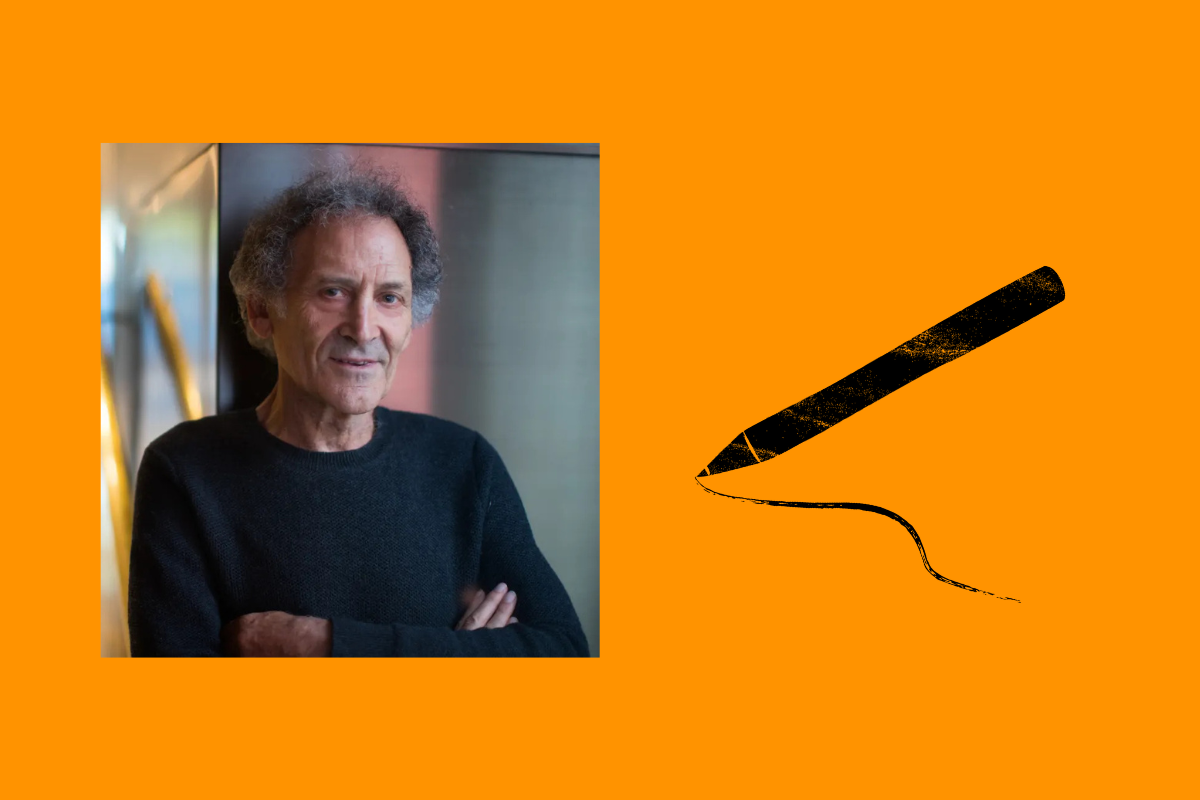Published: 11 November 2022
Last updated: 5 March 2024
The moral contempt behind online acts of ostracism has damaged the power of speech. Let’s give the respectful voice its place back in the public sphere.
It’s an awful song with a catchy title written in 1967 for the inanely named Herman’s Hermits. The evocative title is There’s A Kind of Hush. It is a timely reminder of how the human spirit needs and yearns for a quietness, a stillness, a pause.
And a reminder of how little of this there is in the loud, raucous and competing noises in our universe. Every day we are greeted with the pings of our phones, the loud, violent voices on our screens, angry sounds in our meeting places. There’s so much unquietness, dissatisfaction, rage and angst.
What keeps me up at night is all those enraged polarised opinions. To borrow the memorable lyrics of Paul Simon: “People talking without speaking. People hearing without listening.” Listening is one of the most practical constructive forms of silence.
Silence is at the heart of every Jewish prayer. You can’t go into a synagogue service - and if attentive - not experience a silent, meditative Amidah. And, of course, on Shabbat we stop and replace loud protest with a quiet pause. It is like the pauses in Mozart’s music which Biblical commentator Aviva Zornberg says create its exquisite eloquence.
Judaism has always recognised that silence is potent and powerful, that it can heal wounded hearts, that it can mend fractured relationships, that it can calm conflicted communities and soothe troubled societies.
In his masterful and perhaps most well-known passage about timing, King Solomon notes “to everything there is a season and a time – a time to keep silent and a time to speak”.
The problem today is that we have lost the art of silence and damaged the power of speech.
In the latest Quarterly Essay, Uncivil Wars, Waleed Aly and Scott Stephens crystallise our contemporary crisis. They write that the problem today is not so much one of anger but rather, of contempt. Even though anger can be extremely damaging, there is a place for righteous indignation, for a show of anger to create a change of behaviour.
An angry face, with a composed heart, can help change the behaviour of recalcitrant children, teenagers and even adults. So, Maimonides, echoing Aristotle, wrote: “One should not be temperamental, easily moved to anger, nor be like the dead without feeling, but should aim at the happy medium; be angry only for a serious cause that rightly calls for impassioned annoyance.”
In my mind, Maimonides is highlighting the need to distinguish between the respectful hush or pause and the necessity of selective strong speech.
Contempt is more than anger; it’s about writing each other off. It’s an outright rejection of hearing each other’s explanations. It’s calling people a basket of deplorables, as Hilary Clinton so infamously did.
Aly and Stephens point out, however, that contempt is more than anger; it’s about writing each other off. It’s about a cycle of deep mutual condemnation, an outright rejection of hearing each other’s explanations or defences. It’s calling people a basket of deplorables or irredeemable, as Hilary Clinton so infamously did.
That comment was humorous to some, but it was itself deplorable.
Of course, it was no less shameful and egregious and not half as dangerous as Donald Trump, his Proud Boys, quixotic QAnons and their despicable erasure of anyone outside their camp. I shudder at the chilling gallows they set up for Mike Pence.
Once you cut off people, you’re likely to never come back. Think of all the conflicts that divide families and friends. The problem isn’t just polarisation, it’s the ugly decisive dismissal. Once that happens, family conflicts and political debates cease to be an exchange, heated or otherwise. It stops being about conversation or persuasion. You simply don’t engage at all.
It’s what is happening especially on our university campuses where thinkers are not only barred from speaking but dismissed as dangerous. You have the likes of activist Germaine Greer and Canadian academic Jordan Peterson “de-platformed” because of their viewpoints.
Even left-wing Israeli politicians and scholars are excoriated and not allowed to speak simply because they hold views considered unacceptable to those who disagree with them.
Nothing better fits the definition of moral contempt than online cancel culture with its swarm of public shaming, its calls to be shunned, boycotted, fired from jobs or worse. In short to be cancelled or erased.
Aly points out that the idea of being cancelled comes from a line in the movie New Jack City, “cancel that bitch. I’ll buy another one”. This dreadful comment encapsulates the culture of contempt and the energy of enmity. The closest term in the Torah is probably contained in the curses in Leviticus. It’s called Keri, which means impurity and indifference, obstinacy and hard-heartedness. A kind of nihilism and barbarism.
Cancel culture reminds us of the assessment of contemporary American philosopher David Sussman: “Things are looking up for looking down on people.” And this is as frightening as it is egregious. The 18th-century German philosopher Immanuel Kant put it succinctly: “At times one cannot, it is true, help inwardly looking down on some comparison with others; but the outward manifestation of this is nevertheless an offence.”
Think of all the conflicts that divide families and friends. The problem isn’t just polarisation, it’s the ugly decisive dismissal. Once that happens, family conflicts and political debates cease to be an exchange.
We all make moral judgments and there is a place for well-targeted moral censure, but there is no place for the contemptuous and total rejection of another human being. For this rules out any possibility of improvement, of change, of repentance, Teshuvah.
It also erodes the possibility and necessity of dialogue and a vigorous exchange of views that are critical and essential for the continuity of democracy itself. This is deeply worrying, not only in the US but also in Israel.
To paraphrase the words of the African concept of Ubuntu: people need people in order to be people, but people also need to talk to people different from themselves in order to be people.
Even as Judaism has recognised that there is a place for banishment, or cherem, it has been seen as a road to improvement and was time-limited, not a life sentence. And even the criminal sent to their death was recorded a dignity in their dying – the corpse was not left dangling overnight as a public spectacle but buried as soon as possible.
By contrast, the vindictive ethos of cancel culture rests on its perpetual, eternal damnation and relish of the ongoing public spectacle. There is a primitive delight in cancel culture reminiscent of Roman circuses and the crowd’s hunger for blood.
And as in boardroom politics, so in bedroom politics. American marriage relationship gurus John and Julie Guttman developed a model of marital success based on how couples speak to one another. They can diagnose in one session the health of a relationship. They’ve identified four key predictors of divorce – the four “horsemen of the apocalypse”.
They are criticism, defensiveness, contempt and stonewalling or unwillingness to talk. Contempt is the strongest predictor, the single most important sign that a marriage is in trouble. It’s about completely blocking your partner and allowing no benefit of the doubt.
Relationships can, however, be healed, hearts can be mended, words can build bridges. Respect restores foundations.
This time of the year on the Jewish calendar is a clarion call for change. Let us start in our homes and workplaces, our shuls and our community. Let us make the effort, even though it’s hard to talk to those who we think won’t listen, to reach out to those whose opinions are so different from ours, to go to the places and the echo chambers of our opponents. Or if we are convinced they won’t hear us, then to maintain a dignified quietness.
In Australia, we should have a respectful and vigorous dialogue about republicanism and about the place for a voice for our first peoples, which includes the fact that many of them experienced the monarchy as dispossession.
The vindictive ethos of cancel culture rests on its perpetual, eternal damnation and relish of the ongoing public spectacle.
Let’s try and get through to the schools and universities that a knee-jerk vilification of Israel, a casual Holocaust sneer, is a cancelling of us all - and that we Jews aren’t all white privileged dinosaurs.
Let’s bring the wisdom of our tradition to the table, to the civil and political discussion of our society. We are, after all, a religion steeped in the art of argumentation. In the Jewish religion human beings talk to, argue and remonstrate with God. Jews are also known to argue vigorously with one another. Israeli novelist Amos Oz said: “I suspect we will not agree about everything … But then on most things I do not agree with myself!”
Our key texts are anthologies of arguments. We know about the power of words that we use; we have learned that to acknowledge the other is the gateway to understanding itself. We have felt the sting of hateful words. We know in our blood how when words end, violence begins.
For us, listening is a religious act, and we know that without argument there is no justice, that to reach truth you must listen to the other side and not exclude dissident voices. We can bring countless examples of this, of the acute need for attentiveness to the other, the imperative to listen to the other, to hear the sounds of silence within us - and God’s silent song that is there for those who wish to listen.
The heroes of our faith argue with God, the prophets argue with the people and the leaders. They speak truth to power.
Rabbi Jonathan Sacks reminded us that a healthy culture protects places that respect dissenting views. "Enter them and you will grow, others will grow, and you will do great things together."
In one of his final essays and messages to us, Rabbi Jonathan Sacks reminded us that a healthy culture protects places that welcome argument and respects dissenting views. “Enter them and you will grow, others will grow, and you will do great things together. But resist with all your heart and soul any attempt to substitute power for truth. And stay far from people, movements and parties that demonise their opponents.”
As Barack Obama said: “If all you’re doing is casting stones, you’re probably not going to get that far.”
That’s one of my resolutions for this year - to try not to cancel but to renew, to listen better and speak less, to hush and let the stillness and quietness in. To remember what the English novelist DH Lawrence said: "It is only immoral to be dead-alive, sun-extinct, and busy putting out the sun in other people."
There is so much darkness around us so let’s strive to live up to the prophetic mission and be a light to ourselves and in the lives of others. Let’s allow the necessary hush and the respectful voice back into the world.
RELATED STORY
Is the global decline in democracy linked to social media? We combed through the evidence to find out (The Conversation)
Artwork: Pericles' Funeral Oration by Philipp Foltz depicts the Athenian politician who used ostracism to have his rival Cimon, exiled (Wikipedia/Public Domain)



